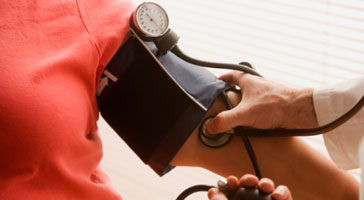Hypertension
|
There are many different drugs available to lower blood pressure. Since high blood pressure rarely causes any symptoms it is important that the medications used have a low likelihood to cause unwanted effects and also that there is good evidence that they are effective in both lowering blood pressure and risk of stroke and heart attack.
The medicines used for high blood pressure include:
ACE inhibitors or Angiotensin receptor blockers e.g. Ramipril Advantages: Safe and effective Beta blockers Calcium channel blockers Diuretics |
